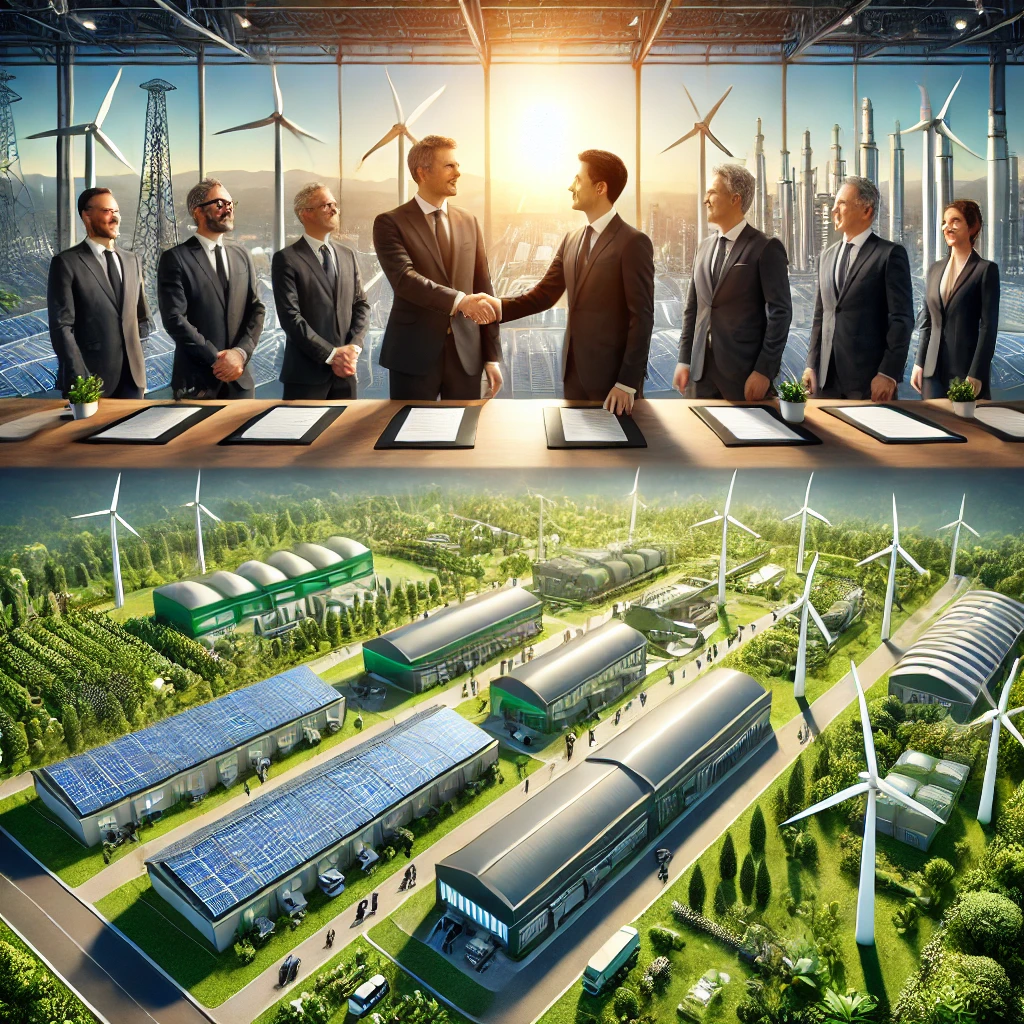IEAT will develop a new estate B854m BCG in Nakhod Savan.

Released: June 11, 2024, at 04:00. In the photo from left to right: Mr. Veeris and the leaders of LPP Industrial Estate at the signing ceremony of a cooperation agreement for the joint development of a new industrial complex in Nakhon Sawan. The development program for the new industrial complex is managed by the Industrial Estate Authority of Thailand (IEAT). This project focuses on the bioeconomy and involves an investment of 854 million baht. The bioeconomy, which is part of the economic development strategy aimed at bio-, circular, and green economies (BCG), supports the use of renewable resources as raw materials for the production of energy, food, and other value-added goods, which is expected to provide new sources of income for producers in the future. The new industrial complex has been named LPP Nakhon Sawan Industrial Estate, as its development is partially funded by LPP Industrial Estate.
Veeris Ammarapala, the head of IEAT, noted: "We expect that LPP Nakhon Sawan will become an important element in the implementation of the state bioeconomy policy, leveraging the advantages of agricultural products and the rich biodiversity of our country." The new complex covers an area of 673 rai in the Phai Sali district and plans to start operations in 2026. "We are confident that this new industrial complex will attract a significant amount of investment, contributing to the strengthening of our country's industrial sector," added Mr.
14 May 2025
13 May 2025
1 May 2025
In Nakhon Sawan, there is also another project related to the bioeconomy called the Nakhon Sawan Biocomplex (NBC), located in the Takli district. NBC is a joint project that is being invested in by companies such as Global Green Chemicals Plc (GGC), the biochemical division of PTT Global Chemical, and Kaset Thai International Sugar Corporation. GGC previously reported that it has completed the construction of a biopolymer production plant at NBC. Mr. Veeris added that LPP Nakhon Sawan will develop according to the concept of an eco-friendly industrial city, which includes the creation of green spaces within the industrial complex. As part of this concept, the use of renewable energy sources will also be actively implemented, especially solar panels on rooftops, which will help the government reduce carbon dioxide emissions.
In 2021, Thailand announced at the 26th UN Climate Change Conference in Glasgow that the country intends to take more active measures against climate change and aims to achieve carbon neutrality, which means balancing emissions and carbon dioxide absorption, by 2050.
Do you like the content of this article?
Tags
Comment
Popular Offers

Subscribe to the newsletter from Hatamatata.com!
Subscribe to the newsletter from Hatamatata.com!
I agree to the processing of personal data and confidentiality rules of Hatamatata














